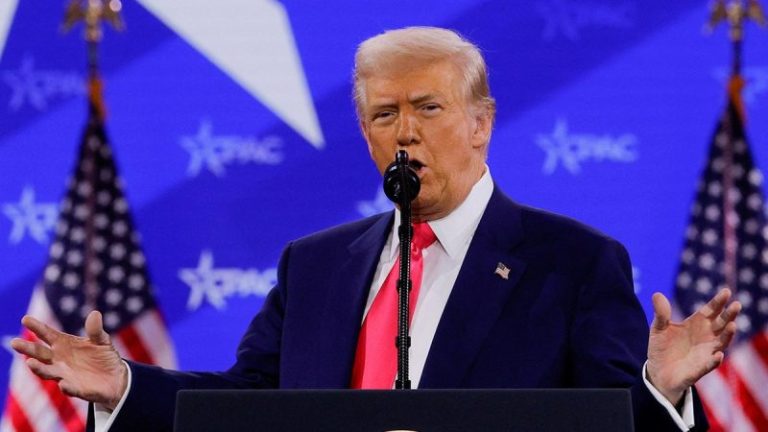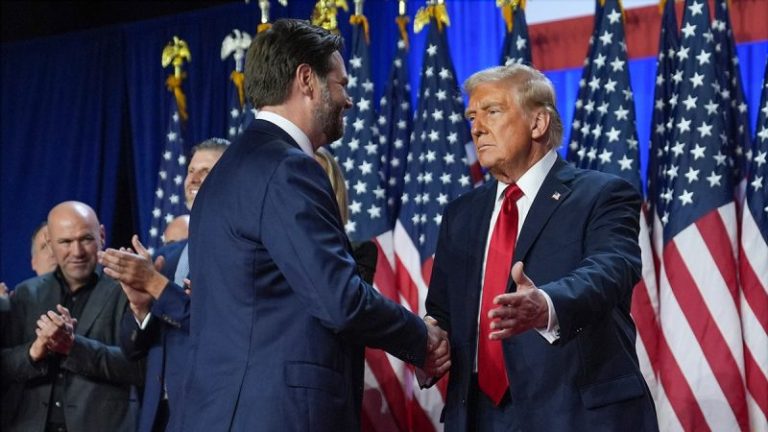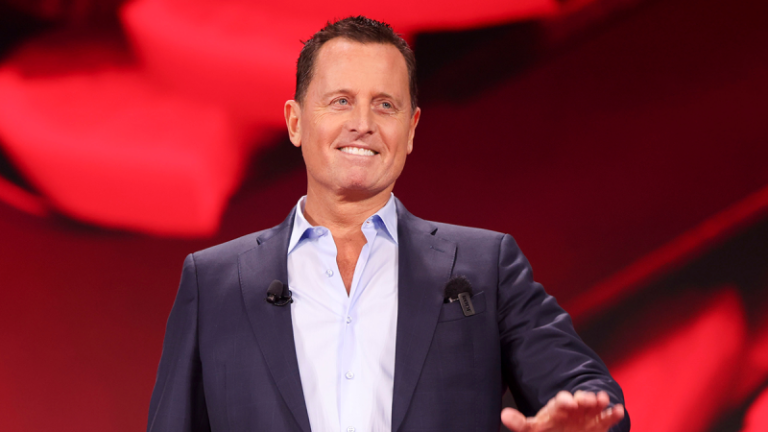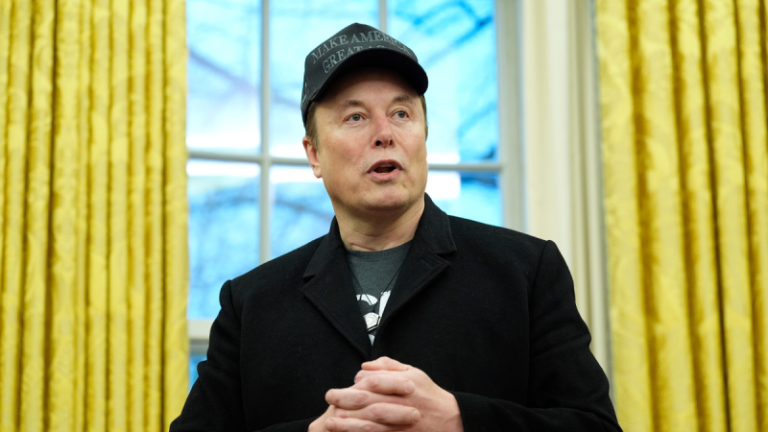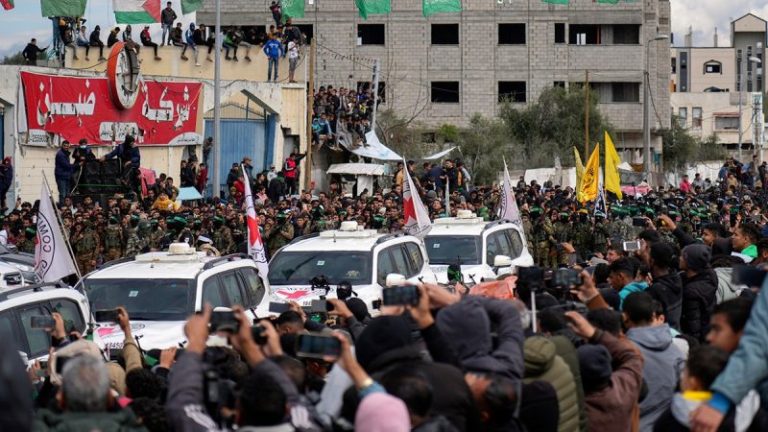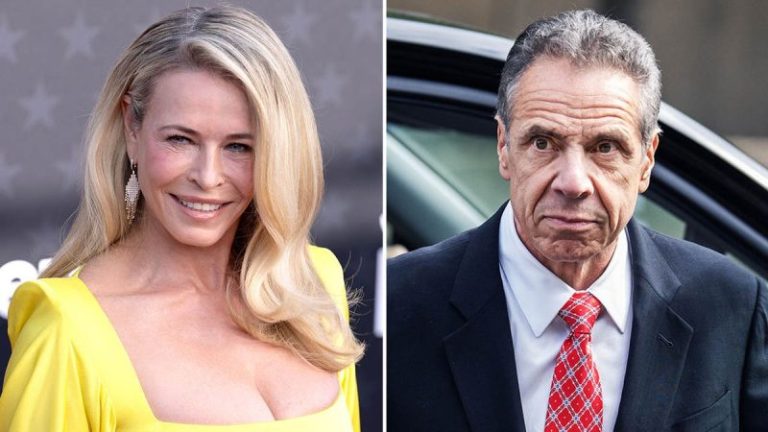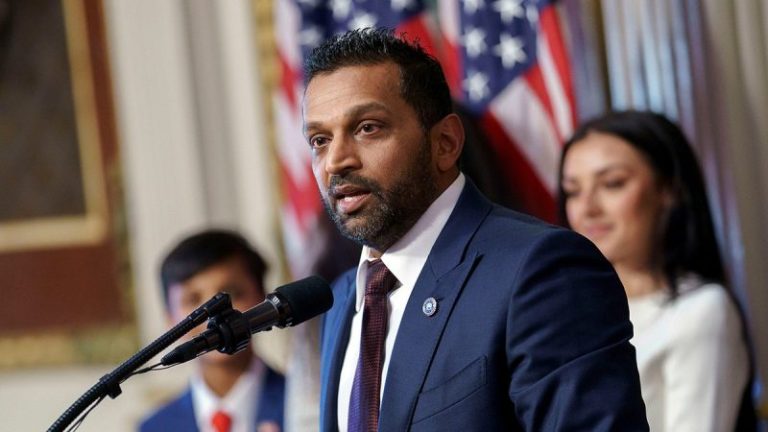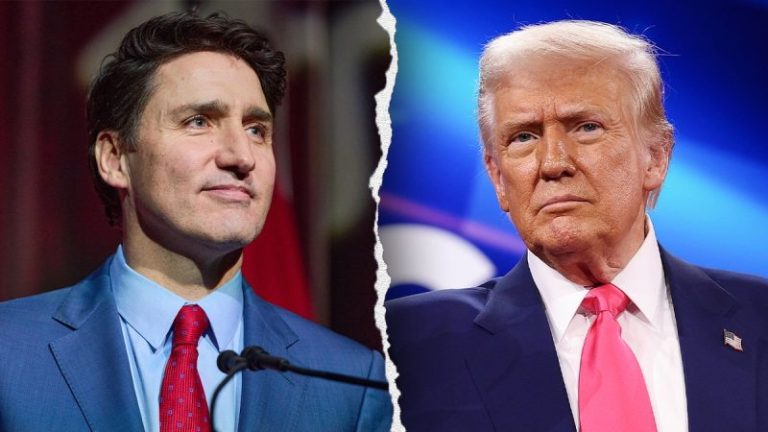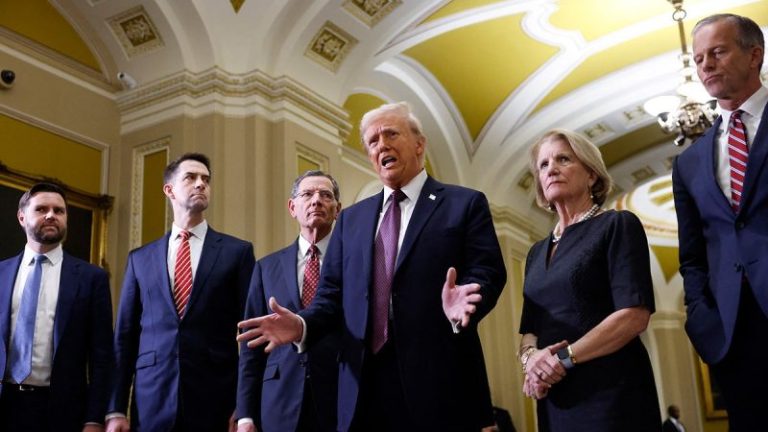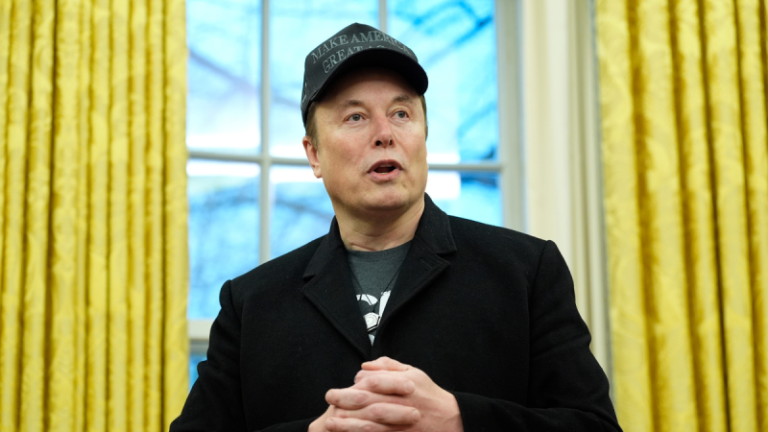President Donald Trump celebrated his whirlwind first four weeks back in the Oval Office in a speech before the Conservative Political Action Conference Saturday afternoon, mentioning what he called ‘flagrant scams’ uncovered by Elon Musk and the Department of Government Efficiency.
‘I signed an order creating the Department of Government Efficiency — you probably haven’t heard of it — which is now waging war on government waste, fraud and abuse. And Elon is doing a great job,’ Trump said at the Gaylord National Resort & Convention Center Saturday in Oxon Hill, Maryland, just outside the nation’s capital. ‘He’s doing a great job.’
Musk is leading DOGE as investigators scrutinize various federal agencies in an effort to curb government overspending and stamp out fraud. DOGE’s work has become a lightening rod for criticism among Democratic lawmakers and government employees, who have filed a number of lawsuits attempting to end the investigations and audits.
‘Here are some of the flagrant scams that, as an example, they’ve spent money on, and we’ve been able to recapture a large dose of it at least. Five hundred and 20 million dollars for a consultant … [on] environmental, social governance and investments in Africa,’ he said.
‘Twenty-five million dollars to promote biodiversity conservation and socially responsible behavior in Colombia. This is Colombia, South America, not Columbia University. Of course, that might be worse. … Forty million to improve the social and economic inclusion of sedentary migrants.
‘Forty-two million for social and behavior change in Uganda. Ten million for Mozambique medical male circumcisions. Why are we going to Mozambique to do circumcisions?’ Trump asked, before continuing to rattle off a handful of other pricey initiatives funded by taxpayers uncovered by DOGE.
CPAC is an annual conference of conservative lawmakers, leaders and voters, which kicked off on Wednesday and wraps up Saturday after Trump’s speech.
Earlier in the day, Trump sent a message on his Truth Social platform calling on Musk to ‘get more aggressive’ with his DOGE work.
‘Will do, Mr. President!’ Musk responded just a few hours ahead of Trump’s CPAC speech.
Musk later added on X, ‘Consistent with President @realDonaldTrump’s instructions, all federal employees will shortly receive an email requesting to understand what they got done last week. Failure to respond will be taken as a resignation.’
‘We have a very corrupt group of people in this country, and we’re finding them out,’ Trump said during his speech. ‘We’re removing all of the unnecessary, incompetent and corrupt bureaucrats from the federal workforce.’
Trump said he and Musk will head to Fort Knox in Kentucky to ensure the United States Bullion Depository still houses a reported $425 billion in government gold. The Trump administration and Republican allies have called for more transparency about the vault.
President Franklin D. Roosevelt visited the vault in 1943, which was followed by Treasury Secretary William Simon opening the vault to journalists and lawmakers in 1974 and again during the first Trump administration when Treasury Secretary Steve Mnuchin and lawmakers, including Republican Sen. Mitch McConnell, inspected the vault.
‘We are also going to Fort Knox. I’m going to go with Elon. And would anybody like to join us? Because we want to see if the gold is still there. We want to see,’ Trump said.
‘Wouldn’t that be terrible? We open [it] up, and this Fort Knox has got nothing. It’s just solid granite that’s five feet thick. The front door, you need six musclemen to open it up. I don’t even think they have windows. Wouldn’t that be terrible if we opened it up and there was no gold there? So, we’re going to open those doors, we’re going to take a look. And if there’s 27 tons of gold, we’ll be very happy,’ he added.
‘I don’t know how the hell we’ll measure it, but that’s OK.’
Trump ended his first full month back in the White House this week, which has included a breakneck pace of executive orders and actions.
He took a victory lap for his whirlwind first month, touting in his speech the administration’s work to end the ‘weaponization’ of the government under the former Biden administration, his plan to soon impose reciprocal tariffs on foreign trading partners and celebrating the deportation of illegal immigrants from communities across the nation.
‘We’re liberating communities like Aurora, Colorado, and Springfield, Ohio, that have been occupied by illegal alien criminals from all over the world,’ Trump said.
‘We’re rescuing the Americans whose jobs have been stolen, whose wages have been robbed and whose way of life has been absolutely destroyed. And, under the Trump administration, our country will not be turned into a dumping ground.’

